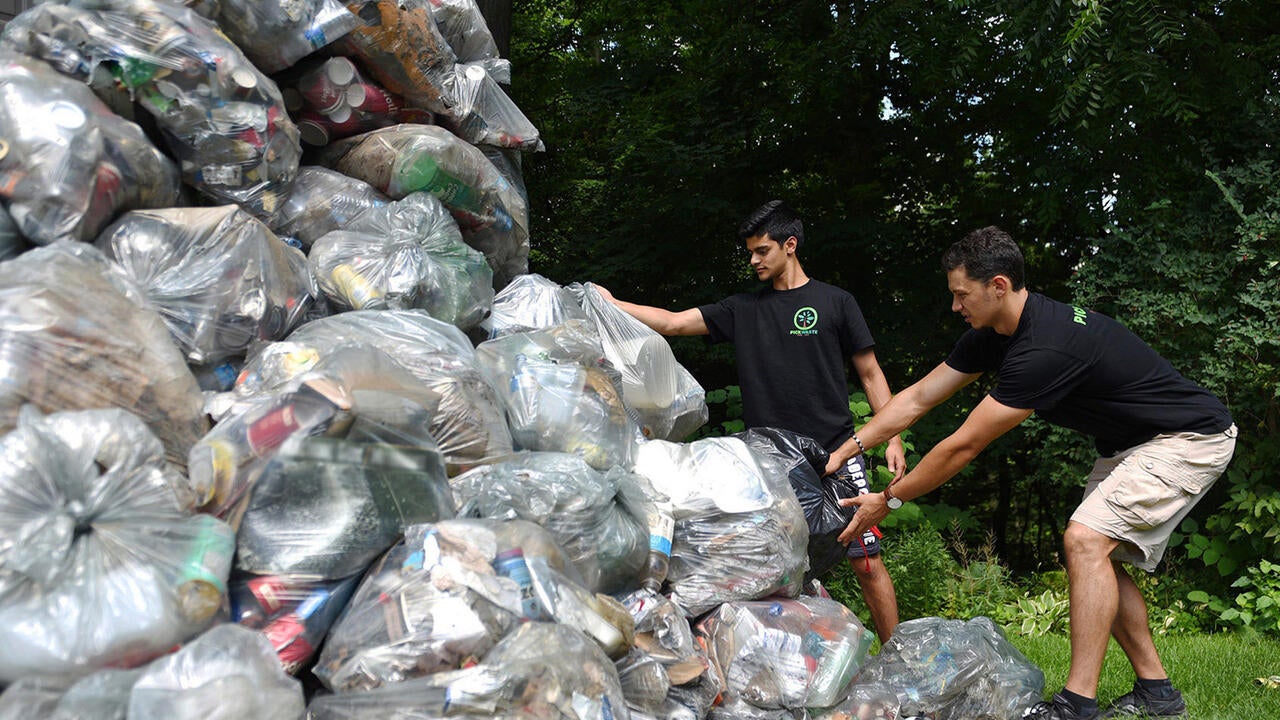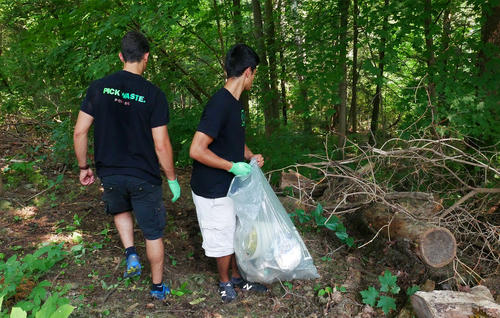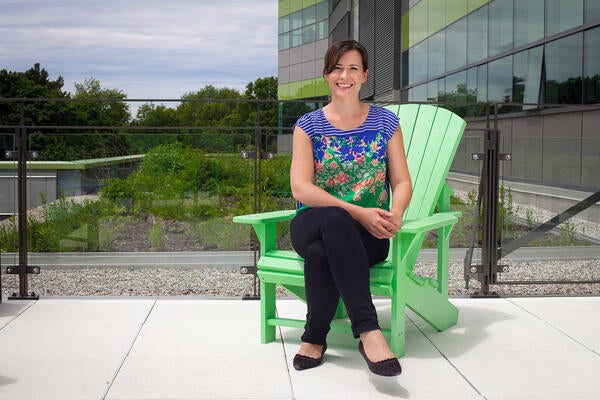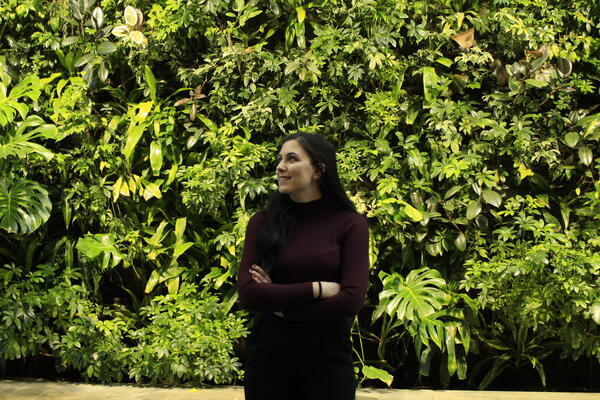
Student’s social venture empowers everyone to reduce waste
Part environmental movement, part budding social enterprise, PickWaste works to raise awareness about environmental issues and empower people to take action.

Part environmental movement, part budding social enterprise, PickWaste works to raise awareness about environmental issues and empower people to take action.
By Elizabeth Rogers Faculty of ArtsYou might not think twice about throwing a recyclable cup in the garbage or dropping a wrapper on the ground — but what if everyone did that. Now imagine what would happen if everyone committed to picking up just one piece of litter a day.
That’s the idea that University of Waterloo student Dillon Mendes and his childhood friend Sam Demma hope to spread across Ontario and beyond. It began as a conversation the pair had in 2017 about the simple act of picking up litter. Inspired by historical figures such as Mother Teresa, Ghandi and Martin Luther King Jr., Mendes and Demma saw that seemingly small, consistent actions could lead to real change.
From there, ideas turned into an environmental movement called PickWaste.
The pair’s initial goal was modest: Meet-up and clean-up for an hour once a week. Their litter collecting efforts started at West Shore Beach in their hometown of Pickering, and soon ballooned to filling more than 100 bags of garbage across the city, which they displayed as part of an awareness event.
“People often say ‘pollution is too big — one small action isn’t going to have any impact.’ But the biggest lie you’re told is that your small action is insignificant,” says Mendes, who is studying accounting and finance with a minor in environment.

Dillon Mendes (left) and Sam Demma (right) collect garbage for Awareness Day.
To date, PickWaste initiatives have filled more than 700 bags of garbage in Pickering alone, and the movement has already spread to other cities, including Ajax, Scarborough and Montreal. Voluntary litter clean-ups are just one of their main tasks. Mendes and Demma also organize social responsibility events, and deliver talks at schools and conferences. Mendes recently spoke at Waterloo’s latest TEDxUW conference on October 13. Mendes and Demma believe education is key to empowering people to reduce the impacts of human activity on the environment.
With a PickWaste chapter recently launching in Waterloo (known as the PickWaste Waterloo Army), the aim is to engage the region’s large student population through student-lead events and clubs. Beyond that, their efforts are being highlighted on a national level, with Mendes recognized as one of Canada’s Top 25 Environmentalists Under 25.
Looking into the future, the PickWaste team plan to go beyond local community and campus clean-ups. Their new venture is working with the Waterloo chapter of Enactus, an organization that supports social entrepreneurs to develop their own line of sustainable products. One of those sustainable products would be the “Pickwaste Party Pack,” a kit of biodegradable items conveniently priced and packaged in one place.
“We’re buying biodegradable products in bulk and packaging them up based on the quantities people need,” says Mendes. “We’re able to slash the price, and it’s a convenient, one-stop shop.”
Mendes also plans to pursue environmental responsibility in the workplace, with an upcoming co-op term at Deliotte in its sustainability division. Despite work and school commitments, Mendes and Demma are equally committed to pursuing their vision.
“Our goal is to spread our message across Ontario,” says Mendes. “Whether it’s starting new chapters across the province or people just becoming more sustainable in their own actions, we want to be the go-to for people to learn how they can reduce their impact in an empathetic way.”
Feature image courtesy of Ryan Pfeiffer/NewsDurham.

Read more
Novelists like Margaret Atwood and photographers like Edward Burtynsky educate society about our changing environment, says Waterloo researcher

Read more
Researcher Sarah Burch has an ambitious plan to transform the business landscape.

Read more
Calling youth to work with corporations instead of against to improve sustainable practices
The University of Waterloo acknowledges that much of our work takes place on the traditional territory of the Neutral, Anishinaabeg, and Haudenosaunee peoples. Our main campus is situated on the Haldimand Tract, the land granted to the Six Nations that includes six miles on each side of the Grand River. Our active work toward reconciliation takes place across our campuses through research, learning, teaching, and community building, and is co-ordinated within the Office of Indigenous Relations.